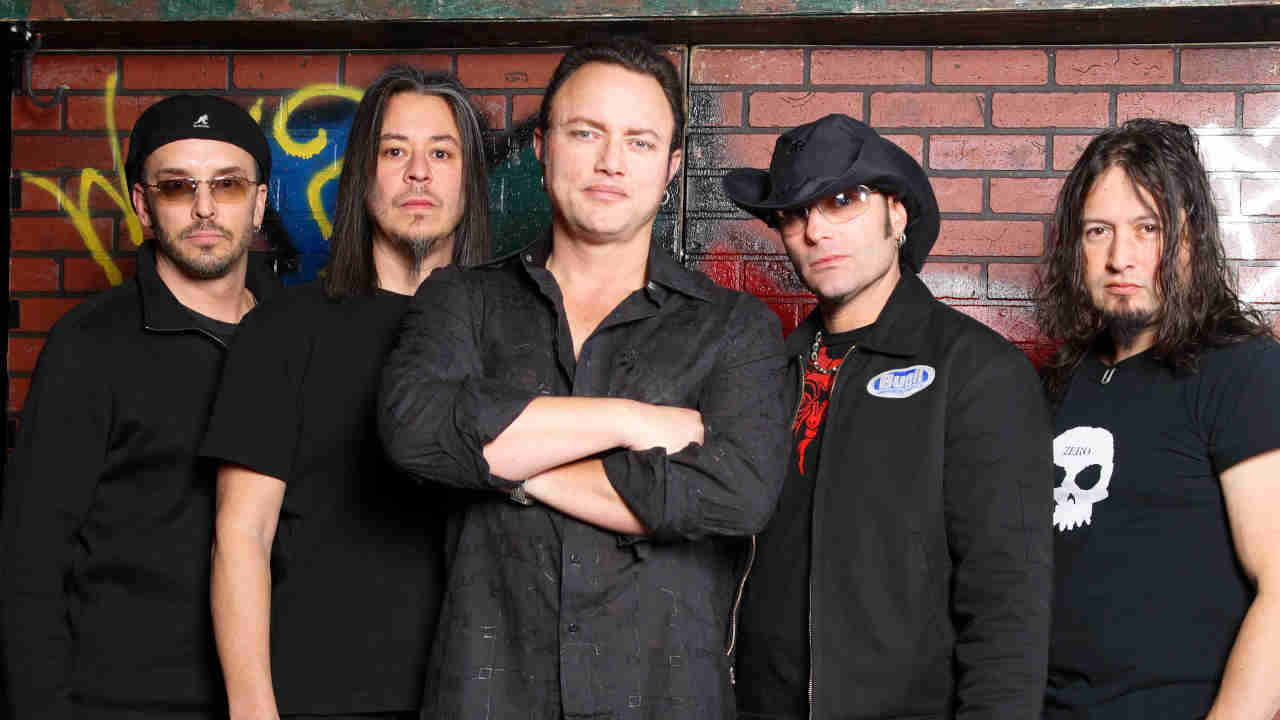Released in 1988, Queensyche’s third album, Operation: Mindcrime, was a conceptual, state-of-the-art metal masterpiece. Nineteen years later, they revisited the characters from the first album with the sequel, Operation: Mindcrime II. In 2006, singer Geoff Tate – who acrimoniously left the band in 2012 – talked Classic Rock through its creation and why the storyline was as politically resonant as it had been almost 20 years earlier.
Arriving at London’s Royal Garden Hotel to talk to Queensÿche vocalist Geoff Tate about the band’s new album, Operation: Mindcrime II, I wonder whether he’ll be in an affable mood or whether he might adopt a more combative stance. Because in releasing a genuine sequel to one of rock’s great concept albums, Queensrÿche have opened something of a can of worms.
“Have we? In what way?” Tate asks, smiling disarmingly. Is he being playful, or employing politeness as a defence mechanism? Or perhaps he’s got a shorter memory than one might give him credit for.
I remind him of a pertinent quote he made: “It’s great that the fans still feel so passionate about Operation: Mindcrime [the first one],” he told me as recently as late 2003, adding: “but we refuse to go back to it.”
“Hmm… did I say that?” he responds, looking somewhat quizzical. Um, well… we left part one open-ended so that some day we could go back to it. Now just seems like the right time. Hey, are you sure I said that?”
Operation: Mindcrime, released in May 1988, was Queensrÿche’s third album, and probably saved the band’s career. Despite The Warning (1984) and Rage For Order (1986) being strong albums, neither had seen much in the way of chart action. So the Seattle five-piece were hardly likely to have been unanimous in giving their approval when, for their next record, Tate suggested a complex, fictional tale that involved brainwashing and the murder of a nun as metaphor to challenge perceived corruption of the United States, then governed by President Ronald Reagen and Vice President George HW Bush. But they went with it.
The resulting Operation: Mindcrime was a brilliant alnum, and a landmark one. It was nominated for a Grammy, sold more than three million copies, and is the pinnacle of Queensrÿche’s achievements. Its success proved to be a double-edged sword for the band, however; it was an album that everything they released subsequently would be compared to, and an album they would spend the rest of their career feeling forced to live up to.

To their credit, they reinvented themselves for Empire in 1990, which actually went on to sell more than …Mindcrime. But as the band’s fortunes dipped, co-founding guitarist Chris DeGarmo quit in the late 1990s.
“Operation: Mindcrime is definitely a powerful ghost,” Tate acknowledged during that interview in 2003. “It still sometimes angers me that everything we do is judged against it, but I’ve come to terms with the fact. I’m the same, too; no one can tell me that Wish You Were Here isn’t Pink Floyd’s best record.”
The detuned, post-grunge direction of the studio albums they recorded after DeGarmo left – Q2K in ’99 and Tribe in ’03 – got mixed reception from the fans. Many, therefore, might wonder whether Queensrÿche have revived …Mindcrime as some kind of commercial crutch. Tate’s eyes widen at the very suggestion.
“Tribe sold great, certainly by comparison to other records of its time,” he counters. “I make more money from what I do now than I did back then, and my life won’t change whether I put out another record like Tribe or …Mindcrime II. I understand why you ask the question, but it makes no difference at all.”
Tate says that the presence of George W Bush – son of former President George HW Bush – in the White House inspired …Mindcrime II.
“It’s so strange in America right now,” he sighs. “The Christians are running the country. This is an awful period if you’re a liberated thinker. Just like in the 80s, anyone with an alternate viewpoint is liable to get burned at the stake.”
Regardless of the motives for making Operation: Mindcrime II, the band needed to do it on their own terms. DeGarmo has had no involvement with the sequel, and Michael Kamen (the first album’s orchestral director) is dead. Tate was also under the impression that Colditz actor Anthony Valentine, who played the malevolent surgeon Dr X had also passed on – and so asked Ronnie James Dio to replace him. And instead of hiring Peter Collins again as producer, they worked with Jason Slater, whose band Snake River Conspiracy had toured with Queensrÿche.
“Were we trying to return to a signature sound?” Tate muses. “Well, we purposely lost all the drop tunings [on the guitar], which I’d hated. It’s also a very heavy album, and there are lots of guitar solos again. We also revisited some musical themes from the first record.”
The story recommences with street kid Nikki leaving jail, having served 18 years for the murder of prostitute-turned-nun Sister Mary. But still he can’t remember – initially, at least – whether he was guilty of the crime. The Nikki/Tate character’s confrontation with Dr X (Dio) – is one of the album’s many outstanding moments. Once again portrayed by singer Pamela Moore, Sister Mary returns to the story, this time in ghostly form.
Although Operation: Mindcrime II is not as memorable as the original (and, really, it couldn’t be), its fascinating new chapters in no way tarnish the original album’s lustre. Even after three or four listens, the conclusion remains uncertain: does Nikki kill himself? Is it Dr X who gets bumped off? Tate isn’t telling.
“This time there’s a conclusion,” he says, “but I’d rather people made up their own minds than give them the outcome on a plate.”
The lack of a cliff-hanger ending should close the door on an Operation: Mindcrime III. Asked to state categorically that the tale has reached a final conclusion, Tate grins broadly before replying: “That’s true at this point. But it’s what I told you last time, too.”
The original version of this feature was published in Classic Rock issue 93

